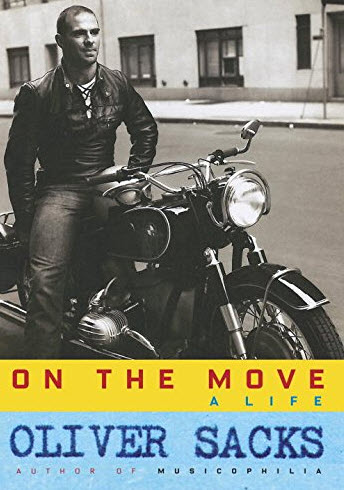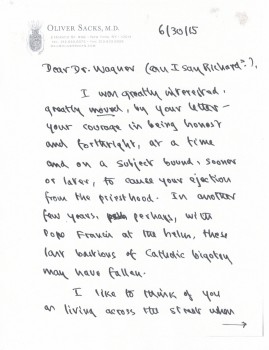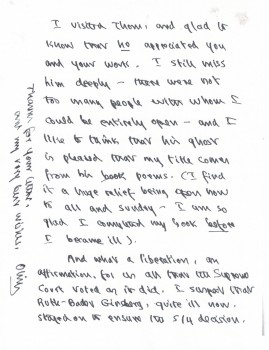
Happy New Year 2016
My Sex Positive Doctrine
Have you ever wondered about the term, sex positive?
If you’re like me you see it all over the place, especially on sex-related sites. I confess I use it way more often than I should. It’s become one of those industry buzzwords that has, over time, become so fuzzy around the edges that it’s now virtually meaningless. In fact, if the truth be known, I believe the term sex positive has been taken over by the sex Taliban who have made it a cover for their strict code of political correctness. Oddly enough, this is the very antithesis of its original meaning.
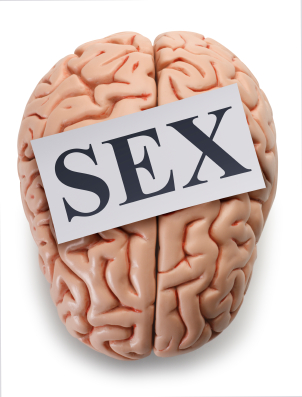 If you want to shame someone in the sex field—be it a sex worker, blogger or adult product manufacturer—you label that person as sex-negative. You may not know anything about that person other than you were offended by something they did, said or made. But still, you hurl the epithet as if you were exorcising a heretic. This is a very powerful tool for keeping people in my industry in line. But I’ve begun to wonder, who is setting themselves up as the arbiter of what is and what is not sex positive? I have to ask: What is the agenda? I mean, could compulsory ideological purity of some artificial standards of thought or behavior be “positive” anything? I say, no!
If you want to shame someone in the sex field—be it a sex worker, blogger or adult product manufacturer—you label that person as sex-negative. You may not know anything about that person other than you were offended by something they did, said or made. But still, you hurl the epithet as if you were exorcising a heretic. This is a very powerful tool for keeping people in my industry in line. But I’ve begun to wonder, who is setting themselves up as the arbiter of what is and what is not sex positive? I have to ask: What is the agenda? I mean, could compulsory ideological purity of some artificial standards of thought or behavior be “positive” anything? I say, no!
Like all good ideas that have gone bad due to overuse—or worse, sloppy use—the sex positive concept once had meaning that was life-affirming and enriching. Sex positive has been in the lexicon at least since the mid-1950s. It frequently appears in journals and research papers to describe a movement that examines and advocates for all the other beneficial aspects of sex beyond reproduction.
I’ve been using the term since 1981 when I opened my practice in Clinical Sexology and Sexual Health Care. The opening words of my mission statement read: “I affirm the fundamental goodness of sexuality in human life, both as a personal need and as an interpersonal bond.” Way back then, I was flush with my quixotic pursuit to stand steadfast against all the cultural pressures to negate or denigrate sexuality and pleasure. I dedicated myself to spreading the gospel that healthy attitudes toward sex not only affect a person’s sex life, but his/her ability to relate well with others.
This came relatively easy for me, because I’d learned something very important about evangelization in my life as a Catholic priest. (Another quixotic pursuit, but we’ll have to save the details of that misadventure for another time. Or you could read about it HERE!) One of the first things one learns in seminary is how to proselytize, to sow the seeds of a creed, and then nurture them taking root by endless repetition of the articles of faith. Of course there is a downside to this, too. Repetition fosters mindlessness, stifles creative thought, and worse makes things boring.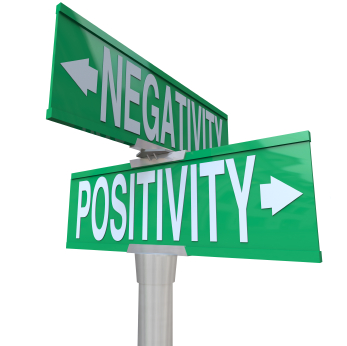
But the creed statements of the world’s three great monotheistic religions are masterful works of theological art.
- Barukh ata Adonai Eloheinu Melekh ha’olam!
- Allaahu Akbar!
- In the name of the Father, and the Son and the Holy Spirit!
Each contains the most profound kernel of religious truth the believer needs to know, but all are easy enough for a child to learn. And like I said, the secret is in the repetition. For the true devotee, these creedal statements are uttered dozens of times a day and to great effect.
Early on in my career as a sexologist, I decided to put the principles I learned in the Church into disseminating my new belief system. First, keep the message simple! I settled on: “Sex is Good—and Good Sex is Even Better.” This has been my mantra for decades. It contains everything you need to know about being sex positive, but it’s easy enough for a child to learn. Even now it soothes me to hear myself say these words. And it comforts me in the same way blessing myself did in my priestly days.
 Despite my apprehensions, I continue to be an apostle of the sex positive doctrine. I know that even though my industry has corrupted the concept, others have yet to hear the good news. And there’s something almost spiritual about seeing someone grasp the idea for the first time. Let me tell you about one such instance. Some time ago I was asked to address a group of doctors on the topic Health Care Concerns Of Sexually Diverse Populations. Unfortunately, just a handful of doctors attended the workshop—which was pretty disconcerting, considering all the work I’d put into the presentation. I guess that’s why kinksters and pervs, as well as your run-of-the-mill queer folk, are often frustrated in their search for sensitive and lifestyle-attuned healing and helping professionals.
Despite my apprehensions, I continue to be an apostle of the sex positive doctrine. I know that even though my industry has corrupted the concept, others have yet to hear the good news. And there’s something almost spiritual about seeing someone grasp the idea for the first time. Let me tell you about one such instance. Some time ago I was asked to address a group of doctors on the topic Health Care Concerns Of Sexually Diverse Populations. Unfortunately, just a handful of doctors attended the workshop—which was pretty disconcerting, considering all the work I’d put into the presentation. I guess that’s why kinksters and pervs, as well as your run-of-the-mill queer folk, are often frustrated in their search for sensitive and lifestyle-attuned healing and helping professionals.
Since the group of doctors attending was so small, I decided to ask them to pull their chairs in a circle so that our time together could be a bit more informal and intimate. Frankly, I’ve never found it easy talking to doctors about sex; and discussing kinky sex was surely going to be very tricky. So, I decided to start off as gently as I could. My opening remarks included the phrases “sex positive” and “kink positive.”
Sitting as close to my audience as I was, I could see at once that these fundamental concepts weren’t registering with them. I was astonished. Here was a group of physicians, each with a large urban practice. Could they really be this out of touch? I quickly checked in with them to see if my perception was correct. I was right! None of them had heard the term, sex positive. The two who hazarded a guess at its meaning thought it had something to do with being HIV+. I had my work cut out for me.
I decided to share my creed with them. “Sex is Good—and Good Sex is Even Better.” I asked them repeat it with me as if I were teaching a catechism to children. Surprisingly, they did so without resistance. After we repeated the mantra a couple more times, I exposed them to the sex positive doctrine unencumbered by political correctness.
- Sex Is Good! Sex is a positive force in human development; the pursuit of pleasure, including sexual pleasure, is at the very foundation of a harmonious society.
- And Good Sex Is Even Better! The individual makes that determination. For example, what I decide is good sex for me, may be boring sex to someone else. And their good sex may be hair-raising to me. In other words, consensual sexual expression is a basic human right regardless of the form that expression takes. And it’s not appropriate for me, or anyone else, to call into question someone else’s consensual affectional choices.
- Sex Is Good! Everyone has a right to clear, unambiguous sexual health information. It must be presented in a nonjudgmental way, particularly from his or her health care providers. And sexual health encompasses a lot more then just disease prevention, and contraception.
- And Good Sex Is Even Better! The focus is on the affirmative aspects of sexuality, like sexual pleasure. Sexual wellbeing is more than simply being able to perform. It also means taking responsibility for one’s eroticism as an integral part of one’s personality and involvement with others.
- Sex Is Good! Each person is unique and that must be respected. Our aim as healing and helping professionals is to provide information and guidance that will help the individual approach his/her unique sexuality in a realistic and responsible manner. This will foster his/her independent growth, personal integrity, as well as provide a more joyful experience of living.
- And Good Sex Is Even Better! Between the extremes of total sexual repression and relentless sexual pursuit, a person can find that unique place, where he/she is free to live a life of self-respect, enjoyment and love.
Finally I told them they ought to think creatively how they could adapt this concept to their own practice. It was up to each of them to make this creed their own. As it turned out, this primer was just the thing to open my planned discussion of health care for kinksters.
In a way this experience was a bit of a spiritual reawakening for me, too. Despite my misgivings about the contamination of the sex positive doctrine by malicious people bent on using it as a weapon against those they disagree with. I can’t tell you how refreshing it was to watch these sex positive novices hear, and then embrace, the message for the first time. It was nothing short of a religious experience.
Religious children are meaner than their secular counterparts, study finds
Religious belief appears to have negative influence on children’s altruism and judgments of others’ actions even as parents see them as ‘more empathetic’
Children from religious families are less kind and more punitive than those from non-religious households, according to a new study.
Academics from seven universities across the world studied Christian, Muslim and non-religious children to test the relationship between religion and morality.
They found that religious belief is a negative influence on children’s altruism.
“Overall, our findings … contradict the commonsense and popular assumption that children from religious households are more altruistic and kind towards others,” said the authors of The Negative Association Between Religiousness and Children’s Altruism Across the World, published this week in Current Biology.
“More generally, they call into question whether religion is vital for moral development, supporting the idea that secularisation of moral discourse will not reduce human kindness – in fact, it will do just the opposite.”
Almost 1,200 children, aged between five and 12, in the US, Canada, China, Jordan, Turkey and South Africa participated in the study. Almost 24% were Christian, 43% Muslim, and 27.6% non-religious. The numbers of Jewish, Buddhist, Hindu, agnostic and other children were too small to be statistically valid.
They were asked to choose stickers and then told there were not enough to go round for all children in their school, to see if they would share. They were also shown film of children pushing and bumping one another to gauge their responses.
The findings “robustly demonstrate that children from households identifying as either of the two major world religions (Christianity and Islam) were less altruistic than children from non-religious households”.
Older children, usually those with a longer exposure to religion, “exhibit[ed] the greatest negative relations”.
The study also found that “religiosity affects children’s punitive tendencies”. Children from religious households “frequently appear to be more judgmental of others’ actions”, it said.
Muslim children judged “interpersonal harm as more mean” than children from Christian families, with non-religious children the least judgmental. Muslim children demanded harsher punishment than those from Christian or non-religious homes.
At the same time, the report said that religious parents were more likely than others to consider their children to be “more empathetic and more sensitive to the plight of others”.
The report pointed out that 5.8 billion humans, representing 84% of the worldwide population, identify as religious. “While it is generally accepted that religion contours people’s moral judgments and pro-social behaviour, the relation between religion and morality is a contentious one,” it said.
The report was “a welcome antidote to the presumption that religion is a prerequisite of morality”, said Keith Porteus Wood of the UK National Secular Society.
“It would be interesting to see further research in this area, but we hope this goes some way to undoing the idea that religious ethics are innately superior to the secular outlook. We suspect that people of all faiths and none share similar ethical principles in their day to day lives, albeit may express them differently depending on their worldview.”
According to the respected Pew Research Center, which examines attitudes toward and practices of faith, most people around the world think it is necessary to believe in God to be a moral person. In the US, 53% of adults think that faith in God is necessary to morality, a figure which rose to seven of 10 adults in the Middle East and three-quarters of adults in six African countries surveyed by Pew.
Complete Article HERE!
A Farewell to a great man
I want to take a moment to acknowledge the death of famed British neurologist and author, Oliver Sacks.
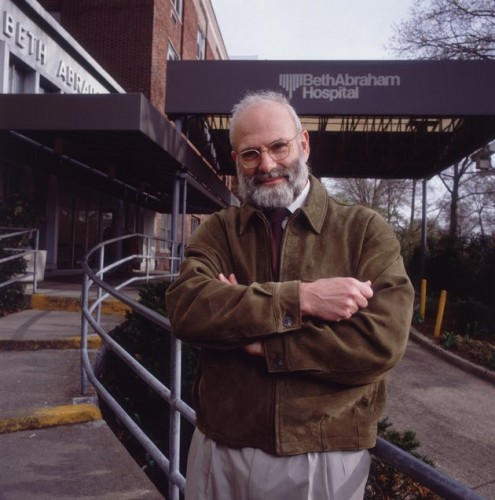
In February, he wrote an op-ed in The New York Times revealing that he was in the late stages of terminal cancer, after earlier melanoma in his eye spread to his liver.
“It is up to me now to choose how to live out the months that remain to me,” he wrote. “I cannot pretend I am without fear. But my predominant feeling is one of gratitude. I have loved and been loved; I have been given much and I have given something in return; I have read and traveled and thought and written. I have had an intercourse with the world, the special intercourse of writers and readers.”
Earlier this summer I read Dr Sacks’s memoir, On the Move. I love it. It’s an interesting memoir by a fascinating personality. And while reading I discovered that we had a dear friend in common, Thom Gunn. What a small world! So I decided to send him a note.
Dear Dr Sacks,
I just finished reading your memoir, On The Move. What an amazing life you’ve lived.
Of all the marvelous things you’ve done and all the fascinating people you mentioned in your book nothing surprised me more than your close friendship with Thom Gunn. I was a friend of Thom too and I lived directly across Cole Street from him. I moved to the flat at 1207 Cole Street in 1979. At the time I was working on my doctorate in clinical sexology at the Institute For The Advanced Study of Human Sexuality in San Francisco.
I didn’t know Thom well at first. However, I would regularly see him walking both in our neighborhood and elsewhere in town. He was always in his leathers, rain or shine, and used to think to myself, “What a mensch!”
It finally dawned on me that he lived across the street from me.
Once he saw me in my roman collar. (I was ordained a catholic priest in 1975 at the age of 25 in Oakland, CA. I had come out to my local superiors; I was a member of the Oblates of Mary Immaculate, before I was ordained. Like I said, I was working on my doctorate to become a sex therapist and prepare for an upfront gay ministry.) Thom smiled at me when he saw me; I blushed and told him what I just told you. He was fascinated, but I also believe he thought I was a twit. He probably was right.
I knew nothing about Thom other than he was my neighbor. Then one day I was in a bookstore on Haight Street and there was a photo of Thom in the window advertising a reading. That’s when I started asking around about him. Despite his cult status within the gay community, he was the most unassuming person. I was honored to have a personal connection with him.
I finished my doctorate in 1981. My dissertation, Gay Catholic Priests; A Study of Cognitive and Affective Dissonance was directed by Wardell Pomeroy. A firestorm of media attention followed. The media branded me as THE gay priest, as if. I think Thom read about me in the New York Times because next time he saw me he clapped me on the back and said, “Well done.”
No sooner did I complete my doctorate, and because of the media attention my public coming out caused, the leadership of my religious community in Rome began a process of dismissal against me. I was devastated and lost. I was even getting death threats. Thom was always so supportive and encouraging.
I fought the church for the next thirteen years in an effort to save my priesthood and ministry. Alas, the writing was on the wall back in 1981 and it was only a matter of time till they had their way with me. I wrote about the travail in a book that was published in 2011, Secrecy, Sophistry and Gay Sex In The Catholic Church: The Systematic Destruction of an Oblate Priest.
Thom was always so solicitous about my wellbeing. He knew how difficult life had become for me. And both of us found ourselves on the forefront of caring for friends who were dying of AIDS. One of my landlords died in 1986.
Thom introduced my housemate and I to Augie Kleinzahler and his girlfriend, Caroline Lander, who lived only a few blocks from us in Cole Valley. We all became great friends and copious amounts of strong drink were consumed. I wonder, do you know Augie?
When Thom turned sixty I surprised him with a homemade German chocolate cake. I told him he was the oldest person I knew. This made him laugh and he called me a whippersnapper.
In 1992 the surviving landlord sold the Cole Street duplex and I and my housemate moved to Oak and Ashbury. Sadly, I didn’t get to see Thom as much as before. I move up here to Seattle in 1999 because I could no longer afford to live in SF. I was deeply saddened to learn of Thom’s death in 2004. He was such a great guy, what a marvelous soul.
Again, thank you for your memoir; it was grand getting to know you on a personal level. I read The Man Who Mistook His Wife for a Hat when it came out in the mid-eighties and loved it. But I never guessed you and Thom knew each other or that you actually visited him when I lived across the street from him. What a small world. I wish I had known you back then.
Anyhow, thank you for the bringing me this unexpected flood of memories of Thom. I wonder what he would have made of yesterday’s Supreme Court decision (Obergefell v. Hodges). I contend that we got marriage equality only because we walked through AIDS first. I think Thom would have agreed with me.
All the best,
richardRichard Wagner, M.Div., Ph.D., ACS
To my astonishment, Oliver wrote back; I mean that literally, a handwritten note. Apparently, he never used a computer.
Dear Dr. Wagner (can I say Richard?), 6/60/15
I am greatly interested and greatly moved, by your letter — your courage in being honest and forthright, at a time and on a subject bound, sooner or later, to cause your ejection from the priesthood. In another few years perhaps, with Pope Francis at the helm, these last bastions of Catholic bigotry may have fallen.
I like to think of you as living across the street when I visited Thom, and glad to know that he appreciated you and your works. I still miss him deeply — there were not too many people with whim I could be entirely open — and I like to think that his ghost is pleased that my title came from his poem. (I find it a huge relief being open now to all and sundry {Oliver came out earlier this year} — I am so glad I completed my book before I became ill).
And what a liberation, an affirmation for us all that the Supreme Court voted as it did. I suspect that Ruth Bader Ginsberg, quite ill now, stayed on to ensure the 5/4 decision.
Thanks for your letter and my very best wishes,
Oliver
Click on this link to see a copy of Oliver Sacks’s note.



